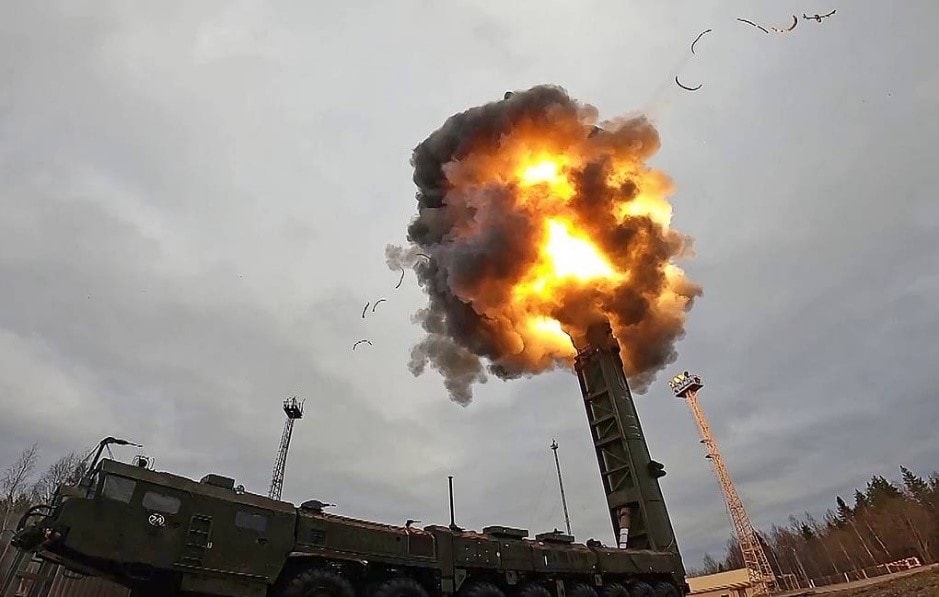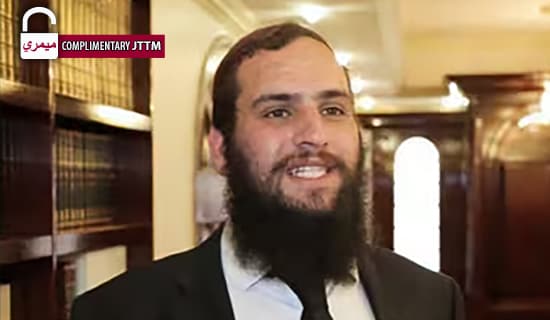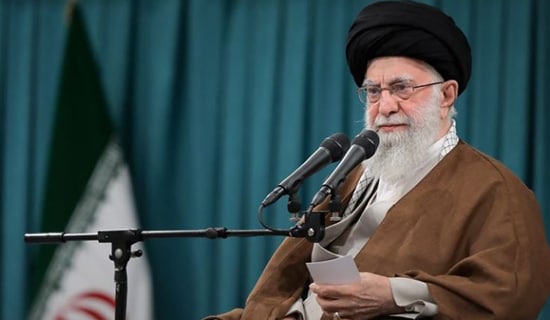In recent days, commanders of Iran's Islamic Revolutionary Guards Corps (IRGC) have referred extensively to Iran's offensive capabilities against U.S. targets, presumably in an attempt to deter the U.S. from taking military action, as well as economic measures, against Iran. IRGC Aerospace and Missile Force commander Amir Ali Hajizadeh boasted that the U.S. bases close to Iran are within range of its missiles, and expressed his pride in Iran's drone capabilities, which are based, inter alia, on American and Israeli drones that it has captured. Hamza Ali Kavyani, Iranian Army deputy naval coordinator, announced that Iran would soon equip its drones with anti-ship weapons and that it had already armed its submarines with cruise missiles. Basij commander Gholam-Hossein Gheibparvar said that Iran has adopted an offensive cyber strategy in order to confront the Western enemy, and former Basij commander and current IRGC cultural affairs director Mohammad Reza Naqdi called on the U.S. to "separate its affairs from those of the Zionists" and "move its outposts away from the Islamic ummah" if it wants to "emerge from this battle alive."
The following are excerpts from the statements by these commanders:
IRGC Aerospace And Missile Force Commander Hajizadeh: U.S. Bases Near Iran Are Within Range Of Our Missiles
In a November 22, 2018 interview on Iran's Channel 1, IRGC Aerospace and Missile Force commander Amir Ali Hajizadeh referred to the IRGC's missile and drone capabilities, saying: "The U.S. bases near Iran are within range of our missiles and are [easy] prey for us. For example, some of these bases are [only] 300 or 400 km from us, such as the Al-'Udeid base in Qatar, the Al-Dhafra base in the UAE and [the base] in Kandahar [Afghanistan]. We even know the exact location of the U.S. RQ-170 [Sentinel] drone at the Kandahar base. These bases, which once threatened us, now present us with an opportunity.
"You have seen that our 700km-range ballistic missiles are accurate. We cannot use them in the Persian Gulf, but we can in the Sea of Oman. Just think: The American aircraft carries with 40-50 fighter planes and 6,000 crew are the center of our target.
"Today we have the largest collection of drones, war booty seized from the U.S. and Israel: the MQ, MQ1 [Predator], ScanEagle, and RQ-170 from the U.S., and the Israeli Hermes [drone]. In this area, we are in fourth or fifth place in the world, and in the region, and as far as the strength of our armed forces goes, we are in first place...
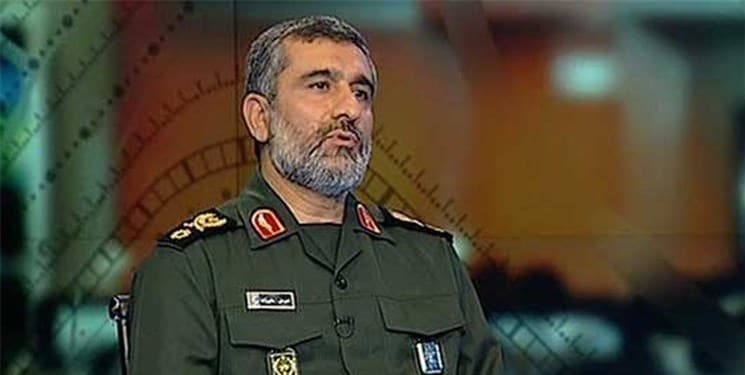
IRGC Aerospace and Missile Force commander Amir Ali Hajizadeh (Source: Fars, Iran, November 22, 2018)
"For example, the Shahed 129 drone circled above the heads of the terrorists in Iraq and Syria in a 24-hour flight – and not only us but also the Syrian army, the Russians, and the Hizbullah forces have availed themselves of it. We have used it and used also a model we created from the American RQ-170 [captured intact by Iran after it was brought down in Iranian territory in December 2011]...
"The Syrian and Iraqi commanders who visited Iran and saw our air defense achievements were amazed, and the Iraqi commander, who was professional and experienced, said that he had seen French, Chinese, and Russian defense systems but that ours was better than those."[1]
Basij Commander Gheibparvar: "The Basij's Cybernetic Activity Will Be Aggressive"
At the opening ceremony of the first Basij professional event focusing on creating digital content and online campaigns, on November 29, 2018, Basij commander Gholam-Hossein Gheibparvar explained Iran's strategy in this realm:
"[The need for creating and disseminating] digital content is not something that can be ignored. If the Basij does not enter this arena, others will instead. Cyberspace presents a golden opportunity for the country, and the first condition [for engaging in cyber activity] is presence in the arena and showing an offensive [strategy]."
Stressing that "the Basij's cybernetic activity will be offensive," Gheibparvar continued: "This is our strategy, and this arena [of activity] will be serious. We must not become mired in [internal] disputes [when we undertake this], and unity is the central principle of [our cyber strategy]. For this [new] cybernetic division to be useful, each person must recognize his mission and know the importance of the arena he is in, because in this arena the enemy's apparatus is [already] perfect. We must believe in the war [that we are waging] in the media, since for most events in the world, the campaign is created in the cybernetic arena. For example, [President] Trump owes his victory to a virtual campaign, not to the press..."[2]

Basij commander Gholam-Hossein Gheibparvar (Source: Fars, Iran, November 29, 2018)
Iranian Army Deputy Naval Coordinator: "We Have [Already] Carried Out The Mission Of Arming The Submarines With Cruise Missiles"
In an interview with the Tasnim news agency, which is affiliated with the IRGC, Iranian Army deputy naval coordinator Hamza Ali Kavyani said: "In the naval arena, we need long-range UAVs. We have carried out large-scale missions in this matter, and in the near future we will reveal them. At the moment, the navy's fighter drones are serving on a mission of naval operations and in the near future we will arm them with anti-ship weapons... We have [already] carried out the mission of arming the submarines with cruise missiles, and the tests [we have conducted] for discovery, interception, and striking targets have been successful."[3]
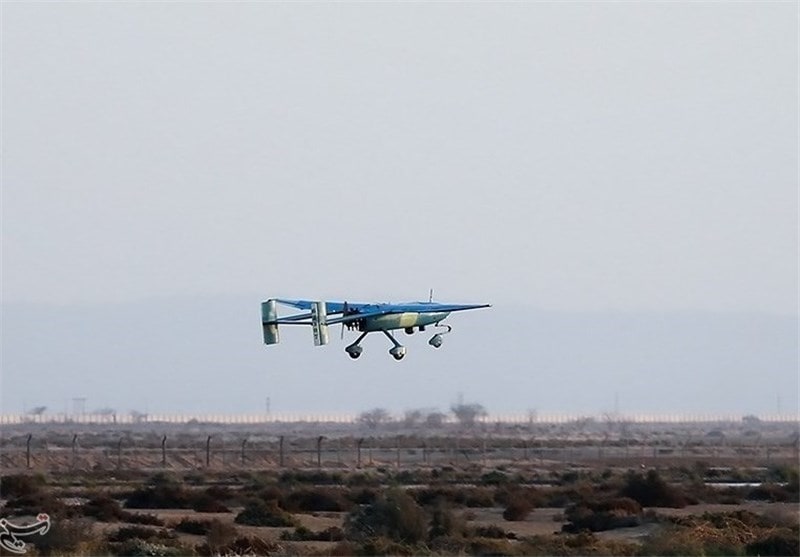
Source: Tasnim, Iran, December 3, 2018
IRGC Cultural Affairs Director Naqdi: "If America Wants To Emerge From The Battle Alive, It Must Separate Its Affairs From Those Of The Zionists And Move Its Outposts Away From The Islamic Ummah"
In a November 26, 2018 speech to Basij forces at a conference in Bandar Abbas province, IRGC cultural affairs director and former Basij commander Mohammad Reza Naqdi called on American forces to withdraw from their military outposts near Iran. The following are the main points of his speech:
"In the past, when America moved towards a particular country, the government of that country would collapse in fear. Now, when the courageous Iranian fighters arrest members of the U.S. Marines, the American military forces wet their pants in fear.
"In years past, America had more sources of foreign currency than anyone in the world; now, America owes $21,000 billion, and with every day that passes, its debt grows by another $205 billion. America will fall quickly.
"[The leaders of] some countries, including the Afghan president, were not willing to meet with the American president at the airport [sic] following the decrease in its might in the world. America's might in the world is shrinking. From an administration that controlled territory in most countries, including Iraq, Syria, and Yamen, see what [America's] circumstances are now after 40 years of struggling against the Iranian people: 90% of the Syrian territory that in recent years was held by takfiri forces [i.e., terrorist groups which Iran claims are supported by the U.S.] has now [in effect] been retaken by Syria, except for 5% of it.
"The popular forces in Syria and Yemen have followed the example of the Basij and the revolution in Iran, and have managed to defeat the enemy. With regard to the creation of an Arab NATO, with the cooperation of Egypt and Jordan,[4] in order to attack Iran – America, with its nuclear weapons and its aircraft carriers, has overstepped its capabilities, and the [Gulf] Cooperation Council summit in the Persian Gulf was canceled.
"The Zionists must know that day by day the forces of the Iranian revolution are tightening the ring of the siege [on them]. If America wants to emerge from this battle alive, it must separate its affairs from those of the Zionists, and move its outposts away from the Islamic ummah.
"[Revolutionary Iran's] 40 years of experience shows that there is no place for America and its military forces in the region. During the Shah's regime, the hands of our people were empty, and the armed forces, the [Shah's security and intelligence agency] SAVAK, the media, and the economy were in the Shah's hands, and all the superpowers supported him. The Iranian people stood with empty hands against the enemy, whose hands were full – [yet nevertheless] it triumphed..."[5]
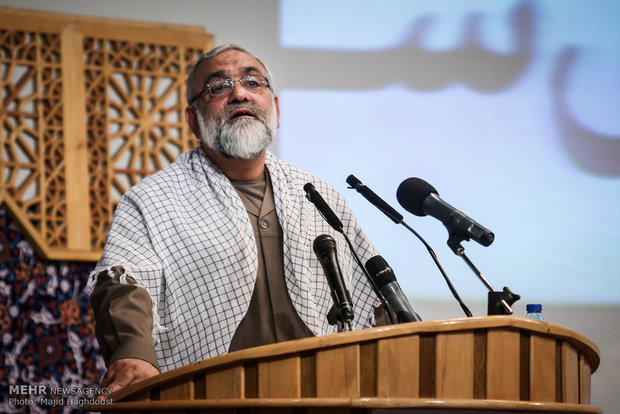
IRGC cultural affairs director Mohammad Reza Naqdi at Basij conference (Source: Mehr, Iran, November 26, 2018)
[1] Fars (Iran), November 22, 2018.
[2] Fars (Iran), November 29, 2018.
[3] Tasnim (Iran), December 3, 2018.
[4] Officially, the Middle East Strategic Alliance (MESA), comprising six Arab Gulf states – Saudi Arabia, the UAE, Kuwait, Qatar, Oman, and Bahrain – plus Egypt and Jordan, to serve as a "bulwark against Iranian aggression, terrorism, extremism and bring stability to the Middle East." Defensenews.com, August 29, 2018.
[5] Mehr (Iran), November 26, 2018.


